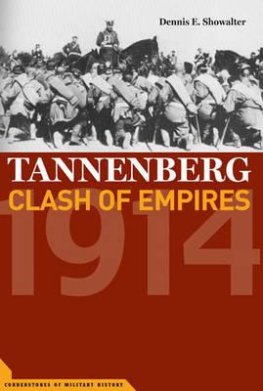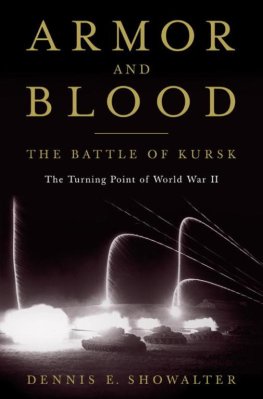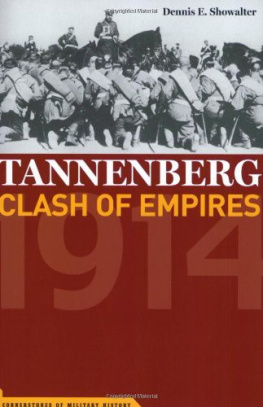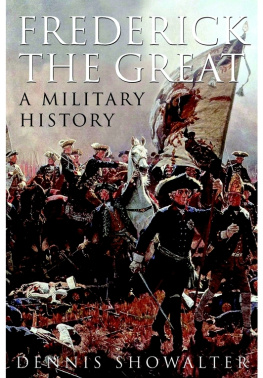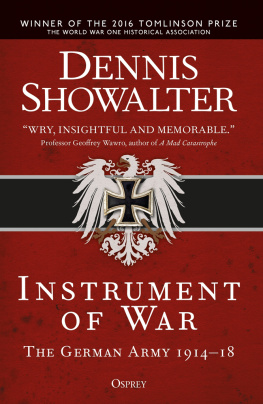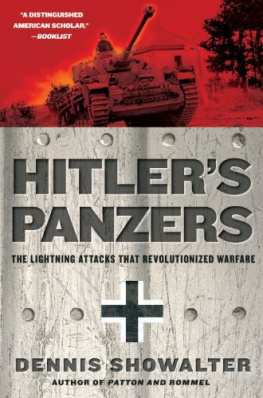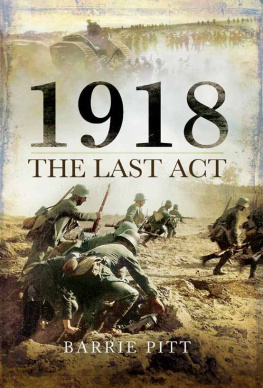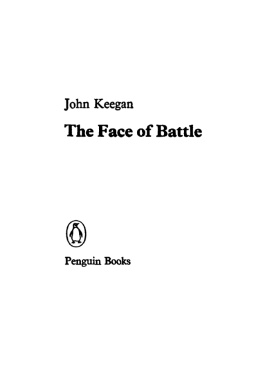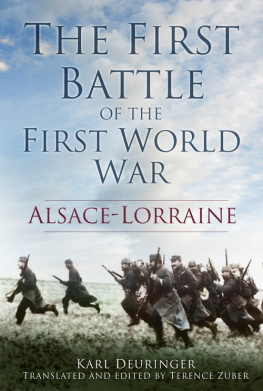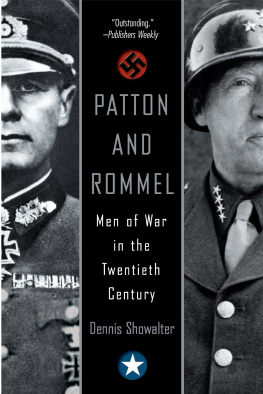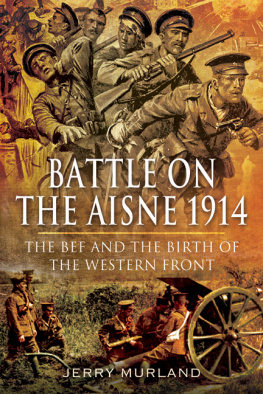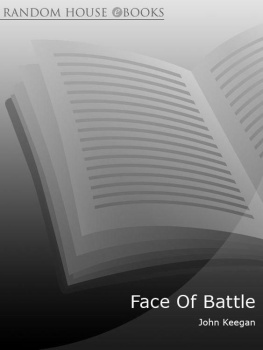Dennis E. Showalter
TANNENBERG
CLASH OF EMPIRES
1914
CORNERSTONES OF MILITARY HISTORY
Brasseys Cornerstones of Military History series presents new editions of classic works of military history. Recognized as the seminal studies in their particular fields, these are the texts that have served as foundations for subsequent scholarship.
More than any modern conflict, the study of the First World Wars origins remains connected with wider issues of politics and historiography. Even before the armies marched, the respective combatants were compiling document collections establishing their innocence in the run-up to war and the initiation of hostilities. These color books, named for their respective covers, were intended as much for domestic as international consumption, aimed at solidifying a public opinion widely and legitimately considered less enthusiastic for war than the massive street demonstrations of late July suggested.
The pattern of justification did not end with a series of peace treaties ascribing responsibility for the war to the former Central PowersGermany in particular. The newly established Weimar Republic lacked the self-confidence to shoulder the moral as well as the financial responsibility for a conflict that had devastated Europe and shaken the world. Instead the government fought back with the best weapon remaining at its command: Germanys academic community. Strongly nationalist and patriotic in orientation, matchless researchers and unrivalled polemicistscontroversy has long been an art form among German intellectualsthe pundits and professors rallied behind a cause lost by the soldiers. Given previously unheard-of access to government documents, frequently supported by government money, a generation of revisionists challenged and denied Germanys sole responsibility for what they recognized as a catastrophe, but attributed to causes more complex than the behavior of a single country and its government.
Politicians elsewhere in Europe quickly recognized the risks of allowing Germany to take control of the discourse on the wars outbreak. Beginning in the 1920s, France, Britain, and the Austrian Republic published elaborate document collections of their own. In a reverse process, the Soviet Union sought to confirm its revolutionary legitimacy by issuing material focusing on Tsarist Russias complicity in the wars outbreak. This material was supplemented by increasing availability of other primary sources, especially memoirs and the documents supporting them. What emerged from the first postwar wave of research and analysis was a kind of pecking order among the major participants, with responsibility adjudicated according to an authors perception of the evidence. Thus in the United States, Harry Elmer Barnes inverted conventional wisdom by blaming France and Russia. Harvards Sidney Bradshaw Fay asserted that Austria-Hungary was more responsible than any other power for the wars direct outbreak. Halfway across the continent at the University of Chicago, Bernadotte Schmitt continued to assert Germanys primary responsibility, while conceding it was not exclusive.
A younger generation of scholars in turn reacted to their dissertation advisors by arguing that it was not the policies of any particular government, or any particular statesman, but systemic factors like imperialism, arms races, alliance systems, that underlay the wars outbreak. General-audience historians as well saw this as a fresh approach, rein-vigorating old readers and attracting new ones. During the 1930s a new paradigm of the wars origins emerged: the assertion of a collective responsibility that was usually so attenuated that the Great War came to be processed as a war no one wanted, a failure of systems rather than a product of decisions. This approach fit well with a wider cultural and political effort in liberal Europe to heal the wounds of 19141918 in the face of the contemporary threats of totalitarianism and depression. Its intellectual and political appeals were strong enough to sustain it for at least a decade after 1945, with Nazi Germany in turn processed as an aberration in German and Western European historyan aberration illustrated as much by its starting World War II as by its genocidal war against the Jews. Probably the most familiar example of this interpretation is Barbara Tuchmans general-audience classic, The Guns of August (1962), which ranks as one of the few works of history that had a direct effect on current events; U.S. President John Kennedy cited it as offering him a lesson in how not to handle the Cuban missile crisis of the same year. And ironically, just as the unwanted war paradigm had its most significant impact, it was being challenged by a fundamental reexamination of a question long thought settled.
West Germanys historians on the whole initially had no trouble accepting the terms of the unwanted war consensus, with its emphasis on comparing mistakes and decisions. Then in 1959 Fritz Fischer of Hamburg University published an article, followed in 1961 by a monograph, stating that Germanys leaders had deliberately pursued an aggressive foreign policy in 1914, knowing it was likely to led to general war. The Second Reich, moreover, waged that war from the beginning in pursuit of a comprehensive set of annexationist aims designed to give Germany continental hegemony and world power.
The particular and general challenges posed by Fischers scholarship generated a fundamental reconsideration of virtually every aspect of modern German history. Yet the Fischer Thesis had a surprisingly limited impact on the subject it ostensibly addressed directly: the origins of the Great War. In West Germany Fischerite purists continued to insist Germany went to war in 1914 from hegemonial ambitions. A domestic crisis school whose influential protagonists included Hans Ulrich Wehler, Wolfgang Mommsen, and Volker Berghahn emphasized internal stresses and contradictions as preparing Germanys path to war. Smaller in numbers, less familiar outside the German historical community, a neoconservative school including Gregor Schoellgen, Egmont Zechlin, and Andreas Hillgruber saw German policy in 1914 as essentially defensive, based on a series of calculated risks to preserve freedom of action in tightening military/diplomatic parameters shaped in turn by Germanys position at the geographic center of Europe. Even these scholars, however, were usually willing to concede a far larger share of German responsibility for the war than their intellectual predecessors.
Outside of Germany as well, a significant number of works continue to place Germany at the head of their lists when assessing responsibility for the wars outbreak. Luigi Albertinis three-volume The Origins of the War of 1914, published in Italian during World War II, translated into English during the 1950s, and still the classic diplomatic history, described Germany as making most of the key decisions. British historian A. J. P. Taylor, in a series of works with general as well as academic influence, presented Germany as the crucial disturber of modern European order. John Keegan sees the First World War (in his book by that title) as a European tragedy, but puts Germany at its focal point. The major recent development in analyzing the Great Wars origins, however, is the growing understanding that the rest of Europe did more than react to German initiatives. In The Pity of War, Niall Ferguson goes so far as to argue that British policy before 1914 accepted the virtual certainty of a war with Germany that the subsequent course of history has shown as neither inevitable nor necessary. While the thesis has generated more criticism than acceptance, it highlights the fact that few signs of a will to peace were to be found anywhere as Europe approached 1914a point clearly demonstrated in Hew Strachans magisterial

